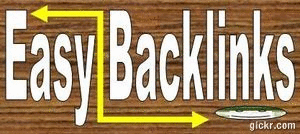Learning to design an excellent SEO incorporated website is not a joke, it requires a systematic approach. Anyone who is design a SEO friendly website has to keep in mind few things which hold relevance from the search engine optimization point of view.
Research keywords.
When designing a search engine friendly site, carry out the research for keywords. Make effective use of a word tracker. A word tracker is a keyword research tool from which one can find relevant databases that could help one grab the attention of prospective audience. The two main things to remember are competition search and the misspelling search.
Place keywords strategically .
Researching for the keyword is a complex chore, but what holds more complexity is correct placement of researched keywords.
Some search engines still use Meta Keyword, Meta Description and Title tags to catalog and rank Web pages. Be sure to place a title tag at the top of each page to identify the document's overall content. You should also write an accurate Meta description tag. Don't neglect to include a Meta keyword tag to reveal the most important keywords for each page to search engine spiders.
Keep your content updated.
This lets search engines know the content on your site isn't stale, plus it will keep your site appealing to visitors looking for the latest information.
Provide enough content.
Major search engines typically require you to have at least 200 to 250 words on each page.
Use images sparingly.
Apart from the logo or any other specific symbol, the text of the website should be kept away from images. The size and the placement of the image also need to be watched.
Avoid using frames if possible.
Frames, which are being used less and less, enable you to split a page into pieces and section off static content to decrease download times. However, they can cause navigation difficulties and prevent search engines from being able to access every page on your website.
Build incoming or back links.
Most major search engines rank Web pages based on the number and the quality of links that point to the Website (link popularity). They do so because it's very difficult for Web masters to "fake" good links. As a result, link analysis gives search engines a useful means of determining which pages are good for particular topics.
Research keywords.
When designing a search engine friendly site, carry out the research for keywords. Make effective use of a word tracker. A word tracker is a keyword research tool from which one can find relevant databases that could help one grab the attention of prospective audience. The two main things to remember are competition search and the misspelling search.
Place keywords strategically .
Researching for the keyword is a complex chore, but what holds more complexity is correct placement of researched keywords.
- Place keywords in the URL. Inclusion of keywords in the URL of the website is optimal. If you have multiple words that need to be placed in the URL, then appropriately separated dashes should be used.
- Focus on areas that register well with search engines, including bold headings, near the top of the page and at the end of the page.
- Embed keywords in the anchor text used to describe links, your domain name and title and Meta tags.
- Use keywords to create a theme throughout the content on your site. Search engines tend to look for a theme or common topic on a Website in an effort to deliver more relevant results for searchers.
- Place your keywords as closely together as possible, while making sure your sentences remain clear.
- Ensure a proper keyword density or weight. The greater the percentage of keywords, in relation to other text, the better.
Some search engines still use Meta Keyword, Meta Description and Title tags to catalog and rank Web pages. Be sure to place a title tag at the top of each page to identify the document's overall content. You should also write an accurate Meta description tag. Don't neglect to include a Meta keyword tag to reveal the most important keywords for each page to search engine spiders.
Keep your content updated.
This lets search engines know the content on your site isn't stale, plus it will keep your site appealing to visitors looking for the latest information.
Provide enough content.
Major search engines typically require you to have at least 200 to 250 words on each page.
Use images sparingly.
Apart from the logo or any other specific symbol, the text of the website should be kept away from images. The size and the placement of the image also need to be watched.
Avoid using frames if possible.
Frames, which are being used less and less, enable you to split a page into pieces and section off static content to decrease download times. However, they can cause navigation difficulties and prevent search engines from being able to access every page on your website.
Build incoming or back links.
Most major search engines rank Web pages based on the number and the quality of links that point to the Website (link popularity). They do so because it's very difficult for Web masters to "fake" good links. As a result, link analysis gives search engines a useful means of determining which pages are good for particular topics.
- Listing your Website with relevant directories and portals is an ideal way to build valuable incoming links. You can also write articles, forum/blog posts, and testimonials and include a link pointing back to your site. In addition, you can trade links with Websites that complement yours. Just make sure they're not competing Websites. The main objective is to link to sites that are closely related to your site's topic.
- Keep in mind that search engines look for websites that are useful for site visitors. If your linking structure indicates that it is helpful and informative, you'll generate more favorable search engine rankings. You'll also enjoy a steady stream of targeted traffic from your link partners.












































































No comments:
Post a Comment